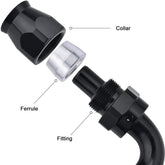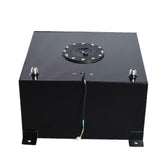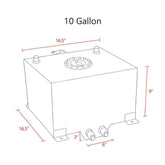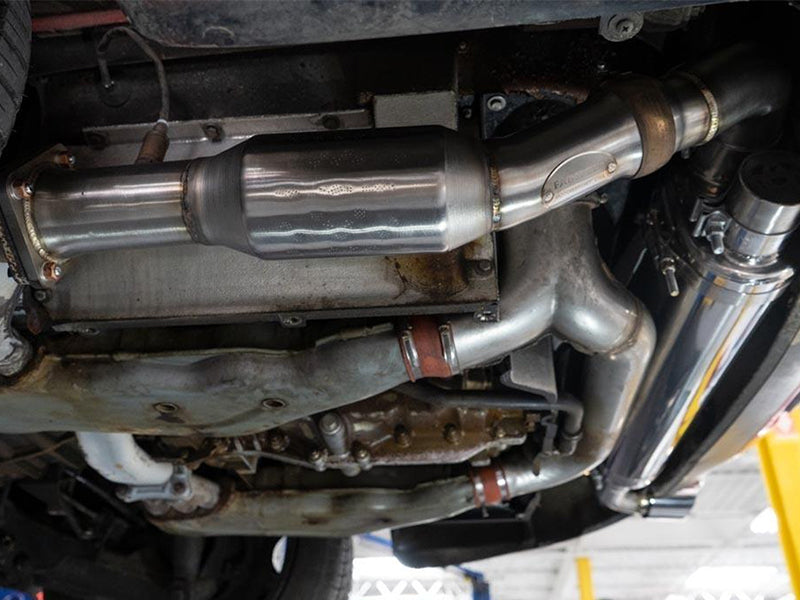The Impact of Catalytic Converters on Vehicle Performance
Vehicle emissions of dangerous substances are significantly reduced by catalytic converters, which helps to lessen the impact on the environment and air pollution.
Legal Requirements:
In many nations, using catalytic converters to fulfill emission requirements is required by law. Automobiles are required to pass emission testing, and a vehicle may fail these tests if its catalytic converter is broken or absent.
Effect on the Environment:
Catalytic converters lessen the negative effects of vehicle emissions on the environment, enhance air quality, and lessen the contribution to problems like smog and acid rain by changing hazardous pollutants into less damaging compounds.
Overheating, engine misfire damage, and fuel impurity contamination are some of the problems that catalytic converters may encounter. Their efficient operation depends on routine maintenance and quick resolution of any problems.In conclusion, catalytic converters are essential parts of cars that help to meet emission regulations, improve air quality, and lessen the negative effects of exhaust emissions on the environment.
The Benefits of Catalytic Converters
Devices called catalytic converters are added to cars' exhaust systems to lower the amount of dangerous pollutants they emit. They offer several advantages and are essential in reducing air pollution.
Reduction of Emissions:
Carbon Monoxide (CO): Carbon dioxide, a less dangerous greenhouse gas, is produced when catalytic converters are used to transform carbon monoxide, a toxic gas.
Nitrogen Oxides (NOx): By enabling the transformation of nitrogen oxides into nitrogen and oxygen, they aid in the reduction of nitrogen oxides.
Reduction of Hydrocarbons:By turning unburned hydrocarbons into carbon dioxide and water vapor, catalytic converters also help to minimize unburned hydrocarbons. In order to solve the problems with smog and air quality, this is crucial.
Improved Fuel Efficiency:
By maximizing the combustion process and guaranteeing that more fuel is transformed into usable energy rather than being released as pollutants into the atmosphere, catalytic converters help to improve fuel efficiency.
Longer Engine Life:
By maintaining a more effective and clean combustion process, catalytic converters can also assist extend the life of engines by minimizing wear and tear on engine parts.
Global Environmental Impact:
Because catalytic converters lower overall pollution emissions, their widespread usage in automobiles has a major positive influence on the environment.
Catalytic Converter Recycling:
Valuable materials like platinum, palladium, and rhodium are utilized in catalytic converters. Recycling these parts not only lowers the need for new mining, but it also gives the recycling sector financial boosts.
The Temptation of Catalytic Converter Delete Pipes
Some auto enthusiasts are tempted to the thought of doing away with catalytic converters notwithstanding their advantages. The promise of additional power and a more aggressive exhaust note is what draws people in. Less exhaust backpressure is promised by catalytic converter deletion pipes, which may improve engine performance. Nevertheless, this modification comes with a set of considerations and consequences.
The Pros of Using Catalytic Converter Delete Pipes
- Enhanced Horsepower: The possibility of gaining more horsepower is one of the main reasons auto enthusiasts want to install catalytic converter deletion pipes. Engine efficiency may increase with less exhaust backpressure, which would result in a discernible increase in power output.
- Unique Exhaust tone: Catalytic converter deletion pipes can produce a more aggressive and resonant sound by changing the exhaust tone. For individuals who are looking for a distinctive driving experience, this audio change is very appealing.
- Simplified Exhaust System: By removing a part that can clog or deteriorate over time, the catalytic converter makes the exhaust system simpler. This can result in maintenance expenses being reduced.
The Cons of Using Catalytic Converter Delete Pipes
- Emissions Violation: In many places, removing the catalytic converter results in an emissions violation, which is one of the biggest disadvantages. Catalytic converter-equipped vehicles help to decrease air pollution, and its removal might result in excessive emissions.
- Environmental Impact: Vehicle emissions are significantly reduced thanks in large part to catalytic converters. Eliminating them may result in increased air pollution, which would be bad for the environment and the quality of the air.
- Legal Repercussions: Using catalytic converter deletion pipes may result in fines and penalties from the government in places where emissions standards are vigorously enforced.
Installation of Catalytic Converter Delete Pipes
Removing the old catalytic converter and installing a straight-through pipe in its place is the process of installing a catalytic converter deletion pipe. Ideally, a qualified mechanic who is aware of the local laws and regulations should make this adjustment.
Considerations Before Installing a Cat Delete Pipe
- Regulatory Compliance: It's critical to comprehend the emissions laws in your area before thinking about making this improvement. Legal problems may arise from the use of cat deletion pipes in regions with stringent emissions regulations.
- Engine Light and Codes: If the car's engine control module detects incorrect emissions levels without a catalytic converter pipe, the check engine light and diagnostic fault codes may come on.
- Resonance and Noise: Although some enthusiasts choose for a more aggressive exhaust note, it's vital to think about how driving and passenger comfort may be affected by the changed sound.
Frequently Asked Questions (FAQs)
Are catalytic converter delete pipes street legal?
Depending on local rules and regulations, catalytic converter deletion pipes may or may not be legal. Because catalytic converter removal and tampering can result in increased emissions and air pollution, it is prohibited in many places.
Moreover, eliminating the catalytic converter may result in a car failing emissions tests, which are mandated in many areas. Penalties or limitations on driving the car may follow from this.
It's crucial to familiarize yourself with the exact laws and ordinances that apply to you and the location where you intend to operate the car. To prevent legal repercussions, always make sure that any modifications you make to your car adhere to local rules.
Will removing the catalytic converter void my vehicle's warranty?
Yes, taking off the catalytic converter may result in the warranty being voided, particularly if the change causes an issue with the car's emissions systems or other associated parts.
Can I install a catalytic converter delete pipe myself?
Weighing the advantages and potential risks is crucial. Generally speaking, it's best to seek the opinion of a qualified mechanic or automotive specialist for customized guidance unique to your vehicle and local laws. To be sure that emissions standards are being met, make sure to also verify local rules and ordinances.









